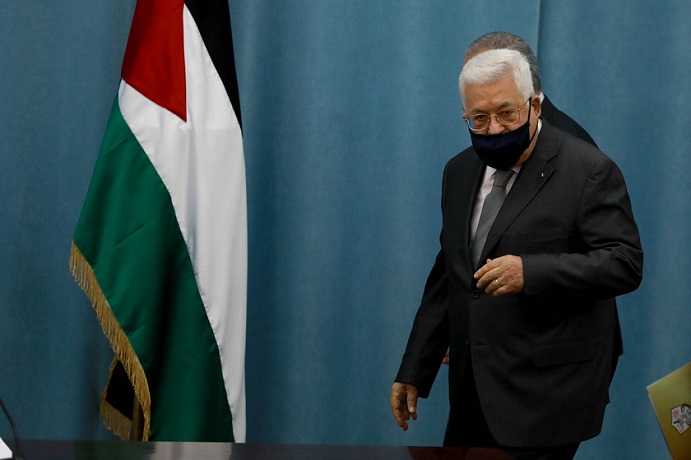Ramona Wadi
Middle East Monitor / May 21, 2020
On Tuesday, Palestinian Authority leader Mahmoud Abbas declared the dissolution of agreements with Israel and the US, following the annexation plans that have been facilitated through the so-called “deal of the century”.
Wafa news agency published Abbas’ declaration, which partly reads: “The Palestine Liberation Organisation and the State of Palestine are absolved, as of today, of all the agreements and understandings with the American and Israeli governments and of all the obligations based on these understanding and agreements, including the security ones.”
Unlike previous occasions, Abbas has shifted from threats to end agreements, to a declaration. However, the details remain vague and contradictory. Israeli media reported that security coordination, which Abbas has on occasions deemed “sacred”, has not been affected by the decision. In addition, Abbas has not declared the dissolution of the PA. If the PA – a body dependent upon Israel and foreign financial assistance – has been unable to take autonomous decisions that go beyond symbolic significance or perfunctory expectations, can its declaration to dissolve all agreements hold any ground?
Palestinian Prime Minister Mohammad Shtayyeh today ordered the cabinet to start “work on translating this decision on the ground.” However, Shtayyeh is already weakening the position declared by Abbas by calling the decision “the moment of truth for all who believe in the two-state solution”, based upon the rhetorical rejections of annexation which the international community has issued so far. No other details have been revealed so far, other than the perpetual validation which the PA gives to the international community by adhering to its plans for Palestine.
Shtayyeh also called for the international community “to rise to the level of responsibility and provide international protection for our people who are under occupation.”
If the PA is no longer bound by the Oslo Accords, there is an opportunity to point out how the two-state compromise, a key component of the Accords, enabled the current annexation agenda. So far, Abbas’s declaration is not spelling any political opportunity for the Palestinian people. Adhering to an obsolete international paradigm is one way of facilitating the US-Israeli annexation plans.
Is there any deterrence in Abbas’ declaration? In the past, Abbas’ threats were met with escalating derision, on account of the PA’s inability to function autonomously. It is possible that the forthcoming annexation, which the international community is treating as a new violation instead of the culmination of a process over decades, has prompted Abbas to be more forthright in his speech.
However, the PA is declaring itself still beholden to fragments of the Oslo Accords with its repeated insistence upon the two-state paradigm. In a recent statement, the EU High Representative Josep Borrell did not indicate any particular opposition to the US-Israeli annexation plans other than “noting with grave concern” and “strongly urging Israel” to refrain from decisions that violate international law.
The international response to annexation is familiar. The PA is yet to prove it is capable of working in the Palestinian people’s political interests. So far, there is little to suggest that Abbas’ declaration contains any potential for political change. If the PA’s dependency prohibits autonomy, the declaration on its own is no cause for celebration so far.
Ramona Wadi is an independent researcher, freelance journalist, book reviewer and blogger ; her writing covers a range of themes in relation to Palestine, Chile and Latin America





![vrijdag 17 mei in Amsterdam: in gesprek [videoverbinding] met Palestijnse arts Ghassan Abu-Sittah](https://palestina-komitee.nl/wp-content/uploads/2024/04/abu-Sittha-1-1-218x150.png)







